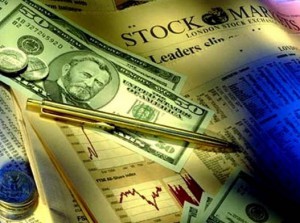European stocks declined nearly 1 percent on Apr.16, pressured by Greece's worsening financial predicament, and euro zone government borrowing costs hit new lows, Reuters reported.
U.S. stocks edged higher on another flurry of better-than-expected profit reports, including ones from Netflix and Goldman Sachs.
German government bond yields fell to record lows after the Financial Times reported that the International Monetary Fund rebuffed an informal request by Greek officials to delay loan repayments.
Greek Prime Minister Alexis Tsipras told Reuters on Thursday he was "firmly optimistic" his government would reach an agreement with foreign creditors.
German 10-year note yields, a benchmark for European government borrowing costs, fell to a low of 0.072 percent.
The widening rift between Greece and its creditors over a deal that would unlock funds for Athens and prevent a default hit European stocks. Credit rating agency Standard & Poor's downgraded Greece late on Wednesday, and the country's short-term bond yields soared to 27 percent.
Treasuries yields rose, with prices under pressure after the Philadelphia Federal Reserve's survey of economic activity came in reasonably strong, and Fed Vice Chairman Stanley Fischer told CNBC that U.S. inflation is headed toward the Fed's target.
The pan-European FTSEurofirst 300 index closed 0.9 percent lower at 1,635.76 points after gaining 0.6 percent on Wednesday to reach levels not seen since late 2000.
The Dow Jones industrial average was up 11.79 points, or 0.07 percent, to 18,124.4, the S&P 500 was ahead 0.44 points, or 0.02 percent, to 2,107.07 and the Nasdaq Composite lost 3.10 points, or 0.06 percent, to 5,007.92.
Of the 51 companies in the S&P 500 that have reported thus far, 76.5 percent exceeded profit expectations, well above the long-term average of 63 percent. Only 47.1 percent have beaten on revenue, however, below the historical average of 61 percent.
"This is a pricey market. It needs earnings to sustain it, and the earnings need to be sustained by strong demand." said Uri Landesman, president of Platinum Partners in New York. "Right now I'm not thrilled with the level of revenue growth we're seeing."
Netflix was the S&P's biggest percentage gainer, up 15 percent at $544.80, a day after it added more subscribers than projected in the first quarter.
Earlier in Asia, MSCI's broadest index of Asia-Pacific shares outside Japan touched a seven-year high and closed up 1.1 percent.
Crude oil prices turned up after news Yemini tribal forces had taken control of a major oil terminal. Brent crude was last ahead 1.6 percent to $64.37 a barrel and U.S. crude was last up 1.33 percent to $57.10.
The Australian dollar hit a three-week high as stronger-than-expected Australian employment numbers reduced the likelihood of an interest rate cut in the next few months. The Australian dollar was last up 1.35 percent at $0.7784.
The euro was last 0.4 percent higher at $1.0730. The U.S. dollar was little changed at 119.18 yen.






